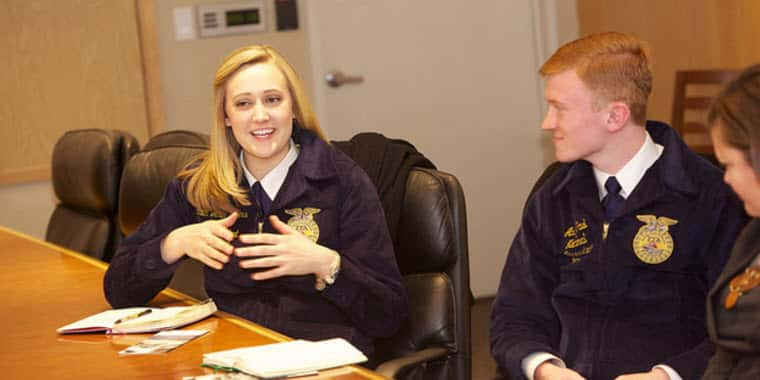Have you ever heard the adage that 77 percent of statistics are made up on the spot? I have always found this to be humorous, but a few recent articles published by The Washington Postand the World Economic Forum have highlighted just how quickly false science, conspiracy theories and other fiction can spread in our unprecedented era of unbounded connection and communication with virtually every other human on Earth. Unfortunately, agriculture is often the subject of attack.
National Ag Day provides student leaders in agriculture with the opportunity to put these skills to the test not only locally, but also in Washington, D.C., a place where discussion and collaboration are a way of life. National Ag Day serves as a symbolic reminder of the need to advocate 365 days of the year for an industry that feeds us, clothes us and provides solutions for other facets of society through a complex interconnectedness of an ever-advancing set of technologies that could be our friend or foe at any moment.



